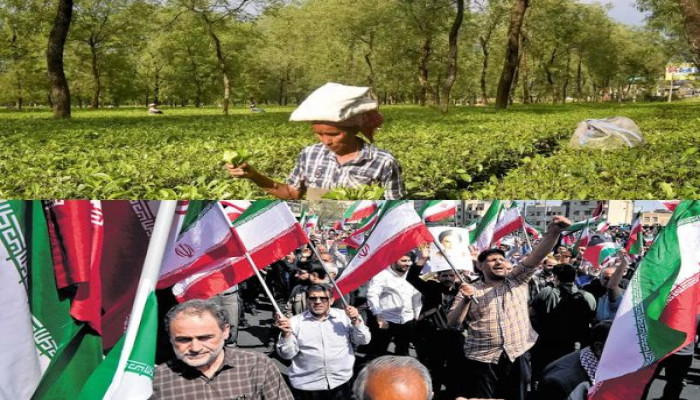India suspends orthodox tea exports to Iran amid war-driven disruptions
- In Reports
- 07:10 PM, Jun 20, 2025
- Myind Staff
India suspended all exports of premium orthodox tea to Iran. The ongoing conflict between Iran and Israel triggered major disruptions. The halt affected shipments worth between Rs 100 crore and Rs 150 crore. Communication blackouts, shut commercial offices, and growing regional instability caused the disruption.
Mohit Agarwal, director at Asian Tea Company, said, “It has been one week since the war began. The shipments for the past week are on hold as we are not able to establish contact with our buyers.”
Exporters said Iran usually bought large volumes of orthodox tea from India during the second flush season. This season served as a key export window for premium-quality tea. But poor connectivity and closure of offices in Iran left consignments undelivered and communication lines non-functional.
Agarwal added, “Offices are closed in Iran, and therefore, the exporters are not able to contact the Iranian buyers. Connectivity has become a major issue in Iran due to the war situation.”
Industry insiders warned that the halt already led to a 5–10 per cent drop in auction prices for orthodox tea. This market recently recorded highs of Rs 314 per kg for Assam orthodox, compared to Rs 295–Rs 299 last year.
Anish Bhansali, partner at Bhansali & Company, said, “Exports to Iran have come to a standstill and prices may fall further. Moreover, uncertainty looms over exports to Iraq, UAE, Saudi Arabia and Qatar as these shipments pass through the Strait of Hormuz, which Iran is controlling.”
Fears of military escalation added to pressure on the trade environment. Strategic shipping routes faced growing risk. The Strait of Hormuz, vital for global oil and cargo shipping, remained under Iranian control. Even indirect threats to shut the strait had earlier caused oil price spikes and global logistics concerns.
Dipak Shah, chairman of the South India Tea Exporters Association, said exporters acted with great caution. He said, “Exporters are taking a cautious stance as freight costs and insurance expenses for shipments are likely to increase if the Iran–Israel conflict prolongs.”
The broader West Asia region—including Iran, Iraq, UAE, Saudi Arabia, and Qatar—consumed about 90 million kg of Indian tea annually. This accounted for 35 per cent of India’s total tea exports. Disruption in this trade corridor posed serious risks to India’s tea industry.
In 2024, India exported 255 million kg of tea worth Rs 7,111 crore. Assam and West Bengal contributed 154.81 million kg worth Rs 4,833 crore. South India contributed 99.86 million kg worth Rs 2,278 crore.
Iran, a key buyer of orthodox tea, usually imported around 35 million kg per year from India. Tea companies feared that the second flush season—traditionally the highest foreign exchange earner—could suffer if the suspension continued.
Some exporters waited for communication to resume. Others reviewed their contracts and insurance coverage due to higher risk costs. A prolonged conflict could lead to excess inventory and pricing pressure at Indian tea auctions. This situation could hurt domestic cash flow and reduce annual revenue.
The government had not issued any instruction yet to restart exports or resolve the shipping freeze. Traders stayed in “wait and watch” mode while monitoring diplomatic and military developments.







Comments